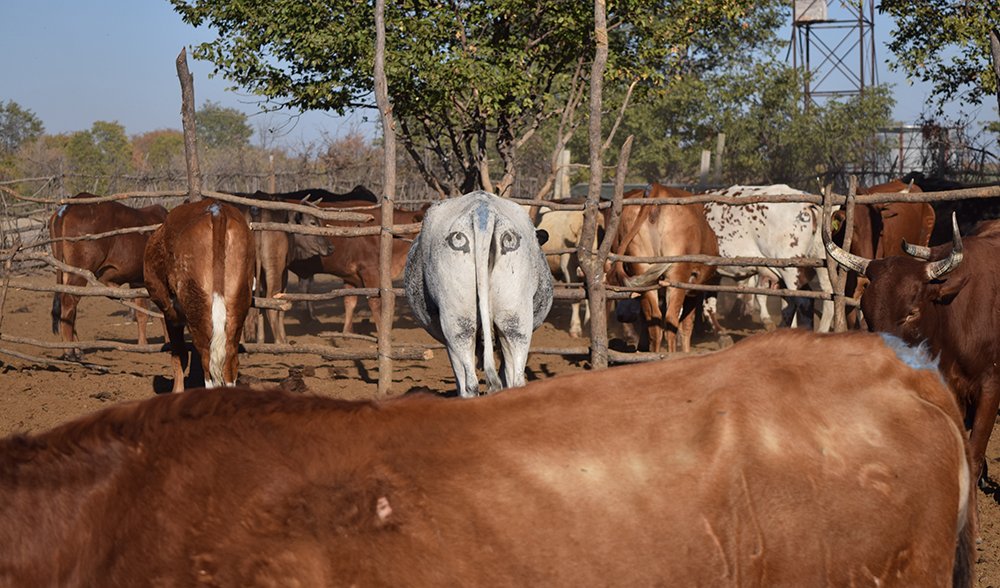New eye-opening solution to scare off predators

IT’S AN EYE-OPENER of an idea: to scare off predators by drawing eyes on the backside of would-be victims. Sounds too simple? Maybe, but the idea seems to work on cows living among hungry lions in Botswana.
Dr Neil Jordan, a conservation biologist from the University of New South Wales and Taronga Western Plains Zoo, came up with the new approach, dubbed iCow, while working in Botswana and seeing how lions and impalas interact in the wild.
“When ambush predators are seen by their prey they tend to give up their hunt, and the iCow idea aims to tap into this response. It took seed while I was watching lions hunt impala. As soon as the impala saw it, the lion abandoned the hunt,” said Jordan.

Dr Neil Jordan in Botswana. (Image: Dikathola-Kedikilwe)
The idea behind iCow is to trick the predator into thinking they have been seen by their prey, and that it is not worth pursuing the hunt, Jordan explained.
And the idea seems to work. In a pilot study conducted last year, 23 cows had menacing eyes painted on their behinds. After three months the results speak by themselves.
“…None of 23 painted cows were killed while three of 39 unpainted cows were taken from the same herd by lions,” said Jordan. However, he warned that so far this is just a promising idea, which still needs to be properly tested.

The hope is that predators will be tricked into believing they’ve been spotted. (Image: Ben Yexley)
Now Jordan is heading back to Botswana where he will do a more extensive trial of his novel idea.
Back home, Jordan plans to apply his ideas on local fauna.
“This specific iCow idea is designed for ambush predators, like lions, that rely on surprise to capture prey, which obviously won’t work with dingoes/wild dogs which don’t hunt in the same wa,” he said.
“However, I do have an ongoing project which, like iCows, attempts to manipulate animal communication for conservation benefit. I’m trialling whether dingo territorial scents might be used to deter them from particular areas, with the aim of reducing dingo/wild dog conflict with livestock,” he added.
RELATED:
- 80 rhinos headed to Australia in bold move to save species
- Here are the animals REALLY most likely to kill you in Australia




